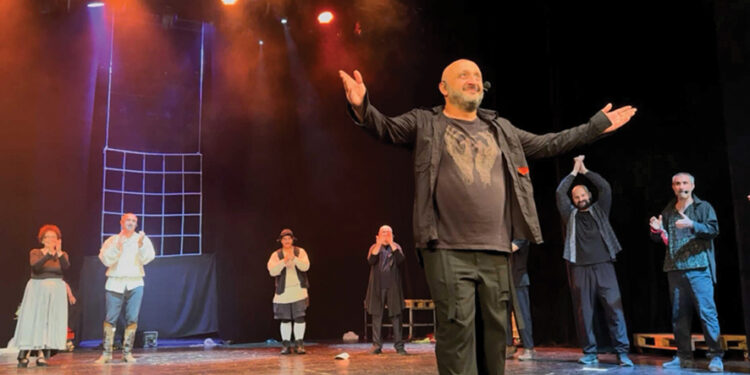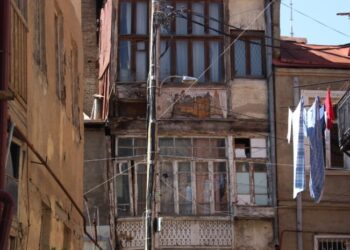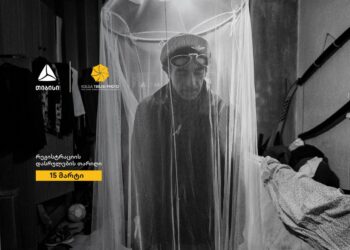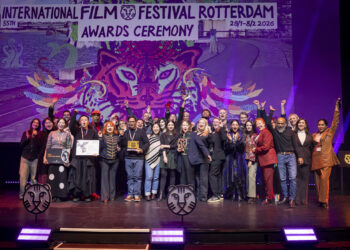This sensational event took place less than a week ago at the Kote Marjanishvili State Academic Drama Theater in Tbilisi. The house was packed to capacity, and the atmosphere was charged with anticipation.
Local theatergoers could hardly wait to see regular prisoners take the stage in the famous roles of Don Quixote, Sancho Panza, Dulcinea del Toboso, the imaginative Rocinante, and others. Convicts appearing as thespians has been a common occurrence in various parts of the world for some time now, but seeing them on a prestigious stage like Marjanishvili was both surprising and, to many, previously unimaginable.
What that segment of the Georgian people—some on stage, others in the audience—achieved together that evening transcended the ordinary routines of life. It was truly something exceptional: the theatrical expression exquisitely subtle, emotions elevated, and the applause uniquely resonant. The feeling was that all of us had reached a peak of humane elevation, marked by decorum, kindness, and sincerity. This cherished event sent a clear signal to the world that this land is a genuine part of civilization, presenting itself with unaffected authenticity.

Finally, the curtain rose, and the masterpiece unfolded before our eyes: perfectly crafted scenery, stunning costumes, enchanting music, and an outstanding performance. The next day, the internet was abuzz with commentary, showering the actors, directors, designers, and backstage contributors with countless compliments. One comment stood out in particular: someone suggested that the Georgian Dream party had staged the show and falsely presented it as a performance by prisoners, when in fact the cast consisted of professional actors. Ironically, this laughable accusation serves as a real triumph for those talented inmates, whose masterful performances made it difficult to believe they weren’t professionals. Indeed, a couple of professionals were involved in the production, which only added further charm and authenticity to the event.

The project was the brainchild of Neli Badalashvili, a Marjanishvili Theater actress, who made it her professional and personal mission to bring inmates onto a professional stage. Incidentally, Neli performed alongside the inmates, whom she now considers lifelong friends. She says she wants to continue working with them indefinitely.

Don Quixote of La Mancha was directed by Gocha Kvichia, a convict himself and, interestingly, the grandson of the late Georgian comedian Ipolite Khvichia. As announced, this remarkable production is expected to remain in the repertoire for quite some time. In truth, Neli Badalashvili is the heart and soul of the entire endeavor. The idea was hers—she conducted the casting, found the director, and created every possible condition for him to work effectively. The results were immediate: Miguel de Cervantes Saavedra—the eminent Spanish author widely regarded as the greatest writer in the Spanish language and one of the world’s foremost novelists—is now represented on the Georgian stage, brought to life by this country’s inmates.

The event stands morally, spiritually, socially, and politically justified, and this exceptional practice should be continued. The audience responded with a standing ovation and several curtain calls. After the show, an elated public formed a corridor of honor through which the performers passed and were warmly celebrated. Immediately following the performance, the Minister of Justice of Georgia, Paata Salia, addressed both the audience and the actors. The Georgian Orthodox Church honored the performers with official commendations for their outstanding work and sincere dedication to art and the public—each signed personally by His Holiness Ilia II, Catholicos-Patriarch of All Georgia.
Actress Neli Badalashvili was once again at the helm, elevating the entire event to the level of high art and the incident of truly national significance. Neli’s patriotism is no surprise to our people – she is an active member of the Queen Ketevan Society of Sakartvelo, founded by the Georgian historian and researcher Tamar Parchukidze. As a matter of fact, the friendship and cooperation of these two notable Georgian ladies have contributed to the effort of popularizing the described piece of Georgian culture.
Review by Nugzar B. Ruhadze














